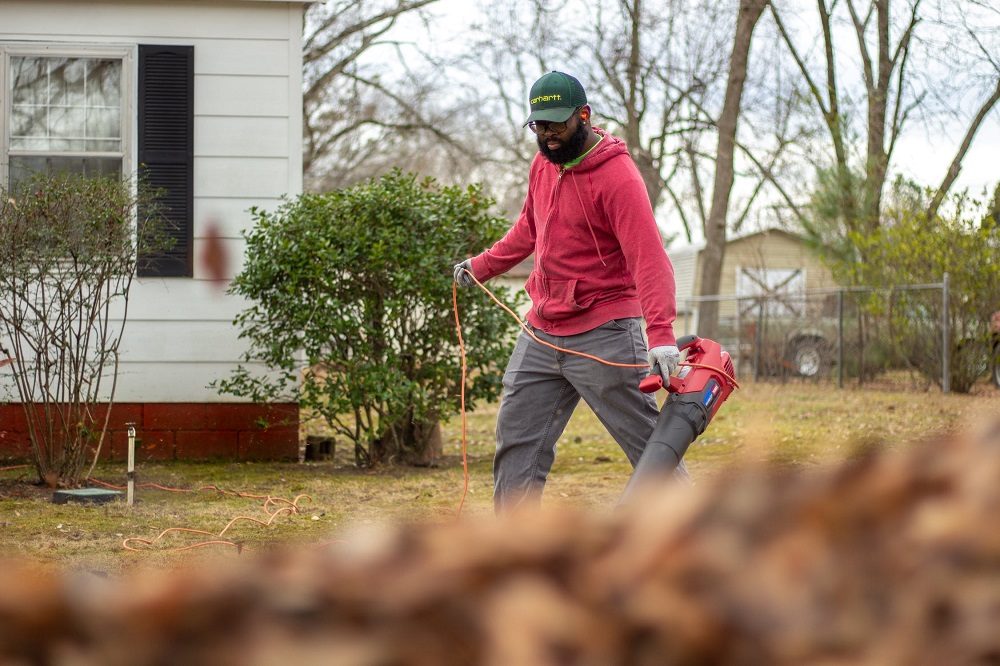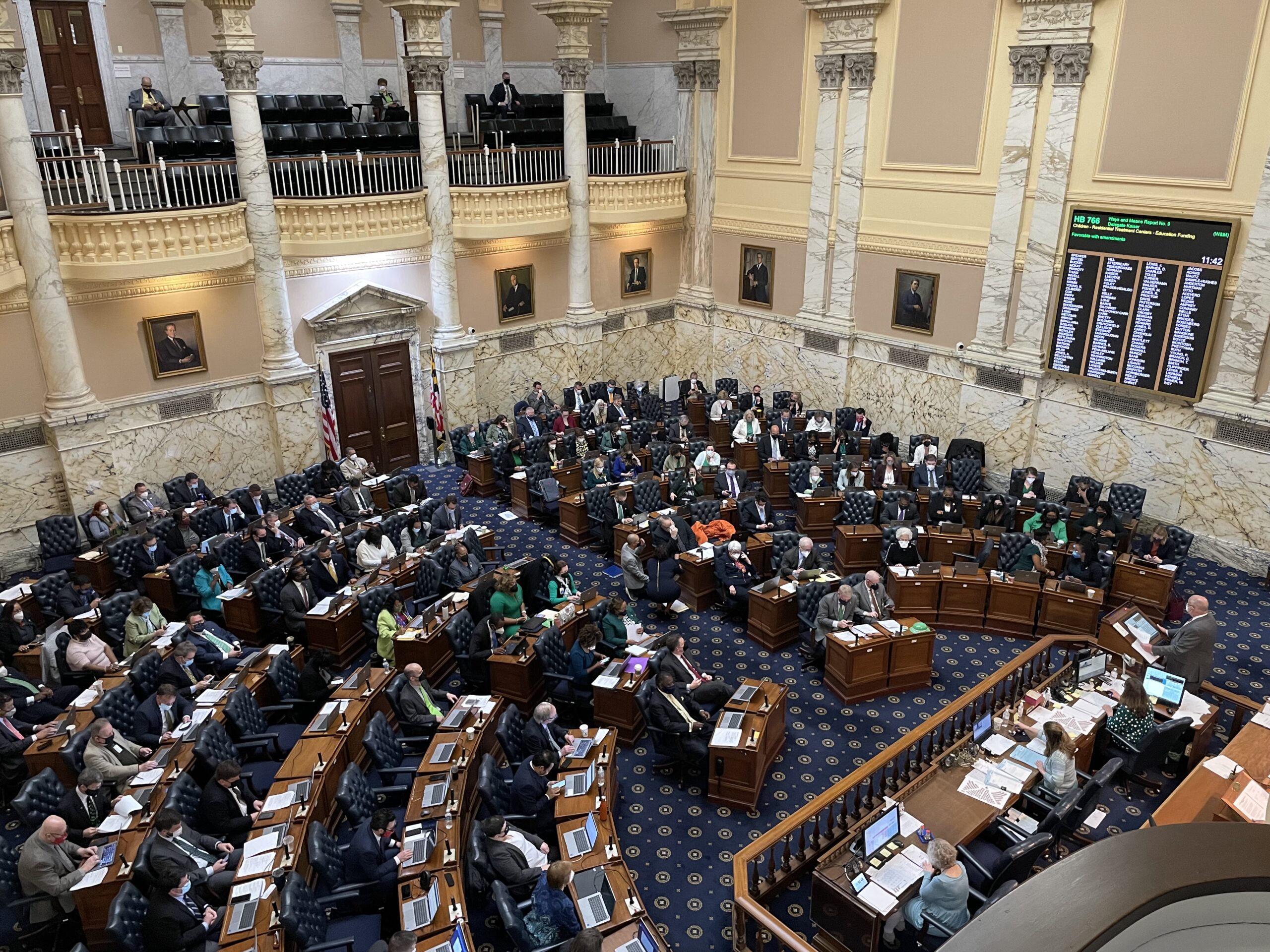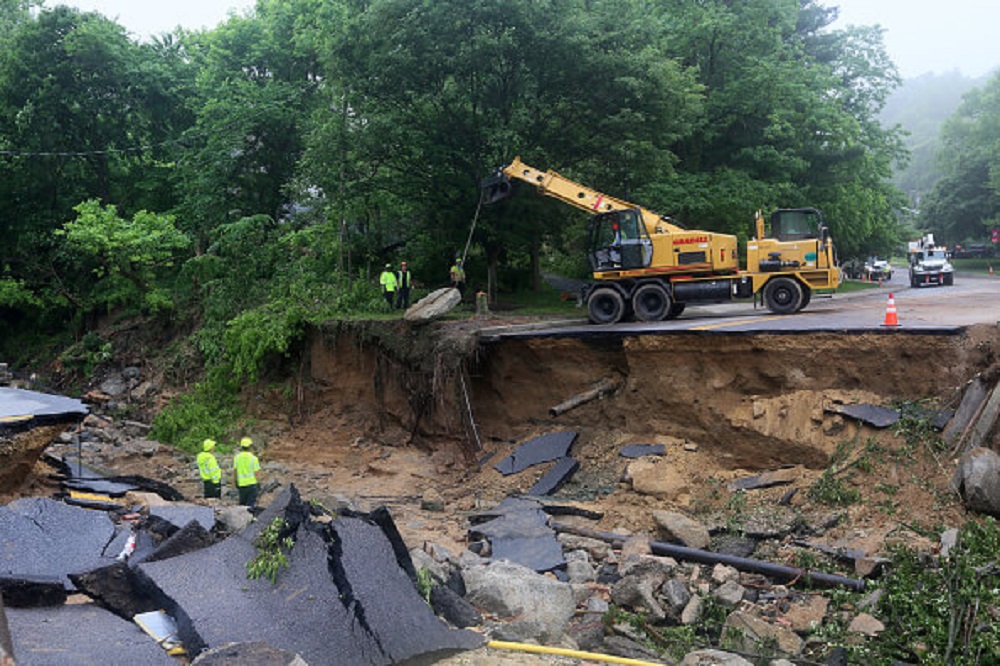Del. Foley: There’s a More Environmentally Sound, Quieter Way to Clear Our Yards

By Del. Linda Foley
The writer, a Democrat, represents Montgomery County’s District 15 in the Maryland House of Delegates.
Backyard Bounty, a local lawn care company in the Montgomery County area, made the switch to all-electric equipment three years ago after getting rid of its gasoline-powered leaf blowers.
“Our crews love the lower noise, lack of gas fumes, and lighter weight of the equipment,” said Kris Colby, operations manager. “Our clients love how quiet the machines are; one even mentioned to me that she can’t tell when the crew’s been for a visit until after they’ve gone because of the lack of noise.”
Many residents in nearby Washington, D.C., are experiencing the same relative quiet. As of Jan. 1, the use of gasoline-powered leaf blowers is banned in D.C. Also gone from Washington neighborhoods this spring will be the smelly fumes and high levels of polluting hydrocarbons spewed by these inefficient two-stroke, engine-driven blowers.
D.C. is one of roughly 170 cities, towns and states across the country, including several jurisdictions in Maryland, that have taken steps to ban these portable polluters. Noisy gas-powered blowers are being replaced by quieter, cleaner electric battery-powered alternatives, whose price tag and operating costs are roughly equal to their dirtier counterparts.
It’s time for the state of Maryland to join these communities and ban the sale and use of gasoline-powered leaf blowers.
I have introduced House Bill 934 in the Maryland General Assembly that would ban the sale of gasoline-powered blowers throughout the state by 2024, followed by a ban of all usage by the start of 2025.
Gas blowers emit hydrocarbons at rates up to nine times higher than those generated by electric blowers. It’s estimated that using a commercial leaf blower for one hour emits as much pollution as driving a 2016 Toyota Camry from D.C. to Miami. One study showed that a leaf blower’s two-stroke engine can produce nearly 300 times the hydrocarbon emissions of a pickup truck, as well as much more toxic carbon monoxide and nitrous oxide fumes.
At the same time, the environmental effects of blower noise will cause birds, frogs, pollinating insects and other creatures to vacate an area, affecting the ecosystem. Gas-powered blowers produce double the number of decibels and have a lower sound frequency than electric leaf blowers. Because they cause high levels of sound at low frequencies, the roar of gas blowers can be heard 23 houses away from a lawn that’s being blown, whereas the sound of electric blowers only will travel six houses away.
It’s no wonder people are annoyed by the operation of these unhealthy devices.
In addition to negative effects on the environment, the noise and toxic fumes generated by gas-powered blowers impact the health and safety of workers who use them on the job. Landscape workers and others may experience hearing loss and respiratory problems due to extensive exposure to two-stroke, engine-driven leaf blowers.
Modern landscaping has come to rely on leaf blowers to make yards, gardens and public areas more aesthetic and less cluttered. But operating gasoline-powered blowers to achieve those results produces detrimental effects on the surrounding community that obviate the appeal of any neatly trimmed yard.
In fact, many landscapers, Backyard Bounty included, have recognized this and have made, and support, the change to electric blowers.
It’s time we join the national movement and do what is right for our workers, for our communities, and for our shared environment and ban gas-powered leaf blowers in Maryland.




 Creative Commons Attribution
Creative Commons Attribution